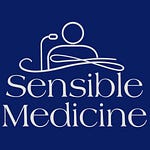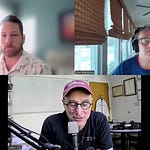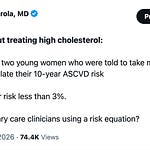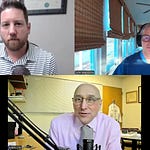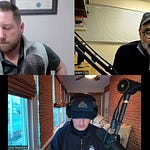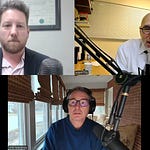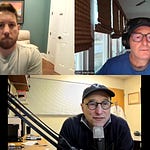I recently recorded a conversation with Michael Easter from the TWO/PERCENT, a Substack and podcast. Michael offers “practical, accurate, and useful health, performance, and mindset information,” and in a space where there is a lot of drive, I find him remarkably thoughtful.
Our conversation is on the podcast feed. Below are my notes for our conversation with links to many of the things we discussed.
Adam Cifu, MD
I am skeptical of wellness celebrities and influencers. They annoy me because they tend to pick, choose and extrapolate data to fit their agenda. Because good medical advice is mostly personal and boring, many influencers cross over to data-free sensationalism to hold an audience.
Michael Easter is a rare exception. On the TWO/PERCENT he somehow manages to be a sane, thoughtful – I might even say Sensible – health personality. I got to know Michael when he invited me to be on his podcast to talk about my article on the cult of the healthy lifestyle. Before talking to him, I dove into a bunch of Michael’s work and was impressed by its quality. I should have known that a person who would invite someone who had come out against the healthy lifestyle on his show dedicated to the healthy lifestyle was someone I’d like.
My Questions:
For people who don’t already follow you, tell me about the 2%. Where does that come from and how to you extrapolate its meaning?
Tell me a bit about yourself, how did you end up here?
In my intro, I mentioned that I think you are a rational “health influencer.” How have you managed this?
Is it a challenge to keep things fresh while telling people to stay active, eat less, and don’t do stupid things?
How do you see the balance of educating and inspiring?
I wanted to talk to you about a couple of recent posts that I thought epitomized your approach.
The benefits of silence was a post about introducing silence into your life. This is something that really doesn’t need data, but you went deep into the data, and then acknowledged how aware you are of the possible confounding. (People’s whose houses are on loud streets die earlier. That might be the noise but they are also poorer and are exposed to more particulate air pollution…).
What got you interested in that topic?
The downsides of blood tests and full-body MRIs
This was a discussion with Dr. Bobby Dubois about the potential benefits and harms of screening tests. I’ve written a ton about this, but I was so impressed with the clarity of the conversation and, although you guys came out pretty negative on the topic, you were honest about the potential benefits and the reasons people find these attractive.
You seem to have a lot of respect for the audience.



